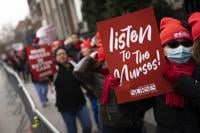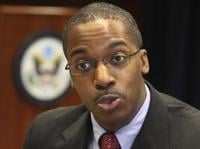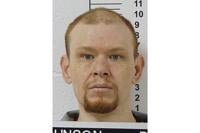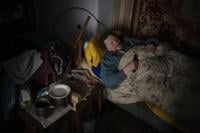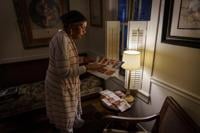WASHINGTON (AP) — Even as 7,000 nurses return to work at two of New York’s busiest hospitals after a three-day strike, colleagues around the country say it’s just a matter of time before frontline workers at other hospitals begin walking the picket line.
Problems are mounting at hospitals across the nation as they try to deal with widespread staffing shortages, overworked nurses beaten down by the pandemic and a busted pipeline of new nurses.
That's led to nurses juggling dangerously high caseloads, said Michelle Collins, dean at the college of nursing and health at Loyola University New Orleans.
“There’s no place that’s immune from what’s happening with the nursing shortage,” Collins said. “It’s everywhere.”
Union leaders say the tentative contract agreement ending the strike by nurses at Mount Sinai Hospital and Montefiore Medical Center, each privately owned, nonprofit hospitals that hold over 1,000 beds in New York City, will relieve chronic short staffing and boost pay by 19% over three years.
The walkout, which ended Thursday, was just the latest dispute between nurses and their employers.
Last year, six unions representing a total of 32,000 nurses launched strikes outside of hospital systems around the country, according to the Bureau of Labor and Statistics. Those strikes represented about a quarter of all the major strikes in the U.S. last year, an increase from the year before.
Describing hospital environments where nurses are unable to take breaks because they are assigned too many patients — some of whom are pleading for care from frontline workers — the president of the American Nurses Association, Dr. Jennifer Mensik Kennedy, said some nurses may think their only option is to strike.
“Nurses don’t feel like their voices have been heard with this exact topic,” she told The Associated Press Wednesday. “Nurses are now feeling like they need to strike. That could continue.”
In California, nurse unions at two hospitals are likely to strike this year when their contract expires, said Peter Sidhu, the executive vice president of United Nurses Associations of California/Union of Health Care Professionals. Sidhu, who fields objections from nurses across the state who say their caseloads are unsafe, has received 7,000 such complaints in Los Angeles County hospitals since December. He said objections have at least doubled since before the pandemic began.
“What I’ve seen is that in areas where we’ve traditionally had good staffing, even they are getting bombarded with patients and a lack of resources,” Sidhu said.
Nurse shortages were plaguing some hospitals years before COVID-19 hit, and signs of a crisis loomed, with a large swath of the workforce nearing retirement age.
A policy brief from the Department of Health and Human Services last year found that over half of nurses were over the age of 50, a much higher percentage compared with the overall U.S. labor workforce, where only a quarter of people are 55 or older.
Aspiring nurses are lining up to replace those retirees but even that silver lining has hit a snag, with widespread faculty shortages at nursing colleges. In 2021, nearly 92,000 qualified nursing school applicants were denied entry into a program, largely because of a shortage of educators,
The American Nurses Association asked Health and Human Services Secretary Xavier Becerra to declare the nursing shortage a national crisis in late 2021.
“Nurses have remained steadfast on the front lines since the beginning of the pandemic, while overcoming challenges, risks to their personal health and safety such as limited personal protective equipment and the physical, emotional and mental health burden of the COVID-19 virus,” the association’s president at the time wrote in a letter to the secretary.
Becerra hasn’t declared a crisis but has met with association and other health care leaders to discuss the shortage.
“Nurses are an essential part of our nation’s health care system,” Becerra said in a statement Friday to The Associated Press. "Supporting nurses and other frontline health professionals providing care in our communities is critical to improving our nation’s health and wellbeing.”
The federal agency has pumped more money into its ��ɫtv Health Service Corps program, which covers student tuition for health workers who serve in high-need communities. Since 2019, the program has nearly doubled the number of nurses and nurse faculty it sponsors.
“This has been an ongoing issue for a while,” Mensik Kennedy said Wednesday. “We really need to work collaboratively with Congress and our health care system to address these issues. Nurses can’t solve these issues by ourselves.”
The number of nurses working in the profession is starting to rebound to pre-pandemic levels, said Dave Auerbach, the director of research at the Massachusetts Health Policy Commission.
But hospitals, especially, are still struggling to lure those nurses back to working in their wards, he noted.
“That sounds like more of an issue of the attractiveness of the working conditions of the jobs,” Auerbach said. “Some of it is outside of the control of the hospitals in those jobs.”
Sidhu left his job as an ICU nurse last year when a third COVID surge struck, after being among the first to volunteer for the COVID unit when the pandemic hit.
He’s noticed a cultural shift in the profession. Fewer nurses want to work 12-hour shifts, multiple days a week. Many are taking jobs at clinics, where weekend or overnight shifts aren’t required. Others have moved to jobs in telehealth, working from the comfort of their home.
Some are simply
“Prior to the pandemic, I knew every once and a while, I’m going to have a bad night,” Sidhu said. “Now, every time you walk into the facility, you’re not just worried about what patients you’re going to have — now you have four (patients) and you know you’re not going to have resources.”
Still, strong interest in the profession led Loyola University New Orleans to start an accelerated program this year aimed at second-career students who already have a bachelor’s degree.
April Hamilton, a 55-year-old food writer, cooking teacher and mother from Baton Rouge, Louisiana, will walk into her first class when that new nursing program starts Tuesday.
She’s read the headlines about staffing shortages and stressful working conditions in hospitals. She’s also seen the tough work nurses do firsthand: Four years ago, she was in the hospital around-the-clock when her daughter spent 40 days in the intensive care unit, recovering from a fall that resulted in an amputated hand and 20 surgeries.
“Witnessing my daughter’s miracle fuels me,” Hamilton said. “I’m ready. I want to be part of the solution.”


